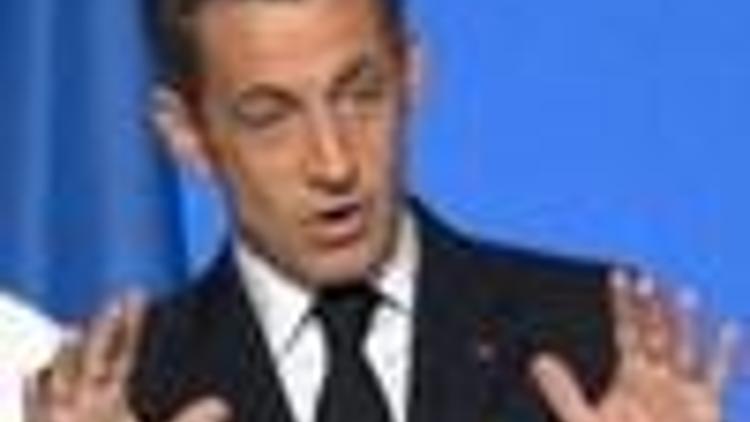European leaders seeks remedies for financial crisis
Güncelleme Tarihi:

French President Nicolas Sarkozy hosts a meeting of European leaders on Saturday to try to shore up confidence in a banking system hit by the worst financial crisis since the 1930s.
The meeting follows approval on Friday by the U.S. Congress of a $700-billion bank bailout plan to tackle a crisis sparked by a collapse in the housing market and resulting bad mortgages.
The fall-out has redrawn the banking landscape on both sides of the Atlantic, paralysed money markets and caused huge volatility on stock markets.
The head of one of Europe's largest banks said on Saturday governments must help fix the crisis.
"To avoid a domino effect, the intervention of states and central banks is essential," Frederic Oudea, head of French bank Societe Generale told le Parisien newspaper.
Beyond offering reassuring words, the summit is expected to focus on whether governments across the European Union should raise bank deposit protection levels to restore confidence.
However, signs of division emerged before the meeting began. Germany repeated its opposition to using taxpayer funds to help ailing banks, and Finland complaining the meeting did not extend to all members of the EU.
Sarkozy has invited German Chancellor Angela Merkel, Italian Prime Minister Silvio Berlusconi and British Prime Minister Gordon Brown to the talks. All four countries are members of the G8 club of industrialised countries.
European Central Bank President Jean-Claude Trichet and Jean-Claude Juncker, chairman and chief spokesman for the finance ministers of the euro currency zone, were also expected to attend.
On the eve of the meeting, the Dutch government stepped in to help Belgo-Dutch financial services group Fortis, committing 16.8 billion euros ($23.3 billion) and partly nationalising a company that got more than 11 billion euros of rescue funds just five days earlier.
That in itself was just one of five rescue operations across Europe in a few days and totalling more than $100 billion.
UNITED?
The $700 billion bail-out approved by the U.S. Congress is earmarked to buy up assets that turned toxic when the U.S. housing market and sub-prime mortgage market collapsed.
Stocks, which had been higher before the vote, dropped, with the S&P 500 index closing at its lowest level in almost four years as investors focused on signs of a gathering recession. The dollar was also in retreat.
French Economy Minster Christine Lagarde said the U.S. plan should inject some more confidence into the system, but played down talk of an overarching European rescue.
"The European answer needs to be at the same time coordinated, cooperative and possibly flexible," she said.
Reported suggestions of a collective EU bank rescue fund of 300 billion euros ($415.7 billion) were leaked to media earlier in the week but squashed rapidly after strong objections from Germany and Britain.
Germany stepped up its opposition to any European rescue fund on Saturday.
"I do not think it can be justified in this situation to ask the state to restore trust that has been gambled away with large-scale debt relief plans financed by tax money," Economy Minister Michael Glos told Bild am Sonntag newspaper.
Some EU countries guarantee 20,000 euros of bank deposits. The Irish government decided this week to provide what appears to be the world's only unlimited guarantee, breaking ranks with others and irking London because the move drained deposits away from neighbouring British lenders.
Before the summit, Britain's Brown urged Europe to help small businesses through a 12 billion pound ($21.2 billion) fund from the European Investment Bank. The EIB has said the money would be spread over two years, but Brown wants the funds made available immediately.
EU member Finland strongly criticised Sarkozy's summit saying all European countries should have a say on how to resolve the crisis rather than just the bigger nations.
"In my opinion it's a very bad idea," Finance Minister Jyrki Katainen told national Finnish broadcaster YLE.
"Is the message from the meeting going to be: 'We have agreed on this and you have to accept it'? Let's hope not."
Finance Ministers from the 15 euro zone countries will meet on Monday in Luxembourg with a meeting of all 27 on Tuesday.
Photo: AFP

